Are we becoming a selfish, uncaring society?

We may be shocked by the news story of a woman and her twin daughters who were abandoned by their family, left to starve and waste away. They probably would have died had it not been for a call to the police by someone in the same building, as the family of three had not been outside for around 15 days.
Police and social welfare officials who went to the flat to rescue the family found them in horrific conditions. The three were obviously too weak from hunger to speak or even go all the way to the bathroom for their bodily needs. There was no food in the house – only some salt and a source of water. The flat was dark and smelly, the electricity and gas lines cut off because the bills had not been paid.
It was baffling; this was not a family languishing in a low-income housing estate. It was an apartment in a building where residents were fairly well-off. So why was this mother and her two 10-year-old daughters in such desperate conditions?
The Daily Star's correspondents spoke to Shafana Afifa Shemi, the mother, as well as Shemi's cousin and her brother. The latter was the only member of her family to come to see her when he received a call. Shemi and her daughters appeared to be disoriented; the painful refrain, "I have no one" was all that they could get from the mother.
From the report, it is clear that Shemi was from a well-to-do family. Her father, a Supreme Court lawyer, owned the flats the family lived in, and when he passed away in 2018, the flats were supposed to be distributed among the siblings. Relations between Shemi and her brothers deteriorated and became so embittered that they practically left her to fend for herself. When she and her children were rescued, her family members had shifted to another location. Police said Shemi had filed a general diary after one of her brothers hit her.
According to her cousin, Shemi was a divorcee with no apparent support from her ex-husband or her own family, and was forced to survive on only Tk 4,000 per month by renting out the parking space of her flat. During the last 15 days, no one had seen Shemi or her two daughters come out of the flat.
Whatever we know from the news report, Shemi's story echoes the general narrative of what a single mother faces in our society, regardless of what socioeconomic status she belongs to. According to police, the flat had been given to her by her mother through "heba." It seems to be her only possession, although she was not in a position to support herself and her children. Her family is by no means poor: one brother lives in Canada, another is a BCS cadre officer, and another owns a business. How could they leave their sister and their 10-year-old nieces to starve? If no one had called the police, surely the three would have died. Who would have been responsible for their deaths?
Shemi's ordeal proves that the ridiculously glamourised notion of the family being the guaranteed support system in drama series and films is grossly overstated. Having a family does not automatically mean unconditional love from them. Family members can be far more toxic than strangers, especially when disputes over inherited property arise. Patriarchy, which is stubbornly entrenched in our society, is designed to keep women perpetually weak by making them dependent on the mercy of a male – either her father, husband, brother, or son.
If Shemi were to work, where would her support system come from? Who would take care of her two children while she would be away? For her to have a babysitter and other staff, she would need a steady, substantial income which, according to the reports, was far from the reality. The fact that she has daughters and not sons could also be a factor for her being abandoned by everyone.
Shemi and her daughters were supposed to be transferred to the National Institute of Mental Health and Hospital, because the hospital staff thought that Shemi was mentally ill. But Shemi's physical condition was so critical, she had to first be shifted to Suhrawardy Hospital for treatment. It is likely that the sheer deprivation of basic needs and the despair of no escape from this miserable life made the mother and daughters seem mentally unstable. Either way, psychological counselling should be a part of their treatment before a presumptuous conclusion is drawn.
But the real question is: who will take responsibility of the three after they are released? If no family member comes forward, logically it should be the state which has, through its system, actually commendably saved their lives in the immediate sense. We also cannot ignore that hundreds of women from less privileged sections of society go through this all the time. Not all of them have the grit or the means to survive; only a few manage to get help from government or non-government organisations.
This is how the community these women are a part of has totally failed them. The myriad of high-rises in our cities may provide housing for people, but the sense of neighbourhood where people made it a point to know each other and be there during crises is fast disappearing. Why did it take 15 days for someone to notice that no one from the family had come out of the house? Some people in the building had heard the children crying; nobody cared enough to find out why. We cannot deny that this indifference and lack of empathy are diseases that are destroying our society, leaving individuals isolated and in a state of despair. Mental illness is an inevitable consequence of such isolation that can lead to suicide or violent crime.
Shemi's plight reminds us of two sisters famously known as Rita, a medical graduate, and Mita, an engineering graduate, who decided to cut off ties with the outside world for 10 years because of the indifference they had faced from their relatives. When they were discovered in 2005, they were found to have some mental disorder and were living in extreme privation. It was eight years later that they were taken in by their older sister, after they had gone missing for months from the flat they had been staying in. They were found at a hotel when the management called the police as they had not paid their bills for a few days and had not come out of their room for three days.
We hope that the social welfare department will make sure that Shemi and her daughters get the treatment they need, and will also find a way so that they can survive and their rights are protected.
But we as a society must realise that we are collectively all responsible for such individuals, regardless of where they are on the social ladder. When an individual is abandoned by their biological family, it is the state and the community that must act as the family and protect their own.
Aasha Mehreen Amin is joint editor at The Daily Star.

 For all latest news, follow The Daily Star's Google News channel.
For all latest news, follow The Daily Star's Google News channel. 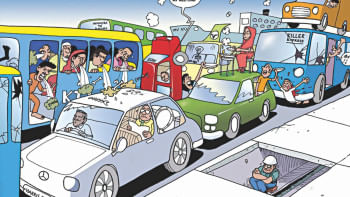

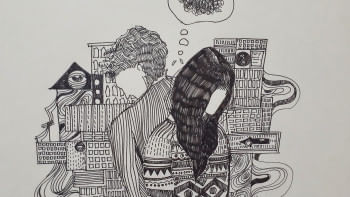
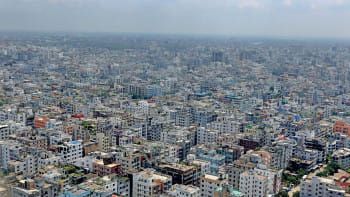





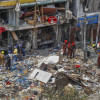
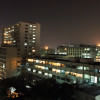


Comments